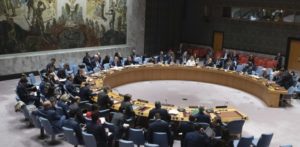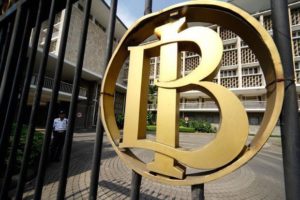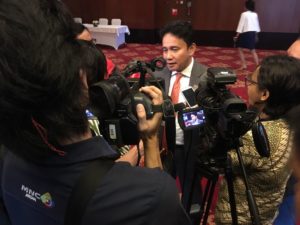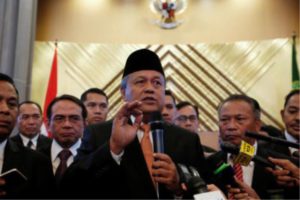Jakarta, MINA — Bank Indonesia`s Board of Governors agreed to raise again the BI 7-day Reverse Repo Rate by 25 bps to 4.75 percent in an effort to strengthen stability.
Bank Indonesia also raised the Deposit Facility (DF) and Lending Facility (LF) rates by 25 bps to 4 percent and 5.50 percent, respectively, effective May 31, 2018.
“Bank Indonesia established the policy as part of its pre-emptive, front-loading, and ahead-of-the-curve moves to strengthen stability, especially the exchange rate stability against a higher-than-expected Fed Fund Rate (FFR) hike and increasing risk in the global financial market,” Bank Indonesia Governor Perry Warjiyo was quoted by Antara News as saying in a statement here on Thursday.
Bank Indonesia believes that Indonesia`s overall economic condition is considerably sound and strong.
Also Read: Saudi Arabia Wins Bid to Host World Expo 2030
Pressures on stability, which began in February, are mostly related to the trend of the FFR hike, as well as increased global uncertainty due to a policy change in the United States and a number of geopolitical risks.
Moving forward, Bank Indonesia will continue to calibrate updates in the global and domestic economy to make use of available room to raise the policy rate, in a measured way.
The decision to raise the policy rate is part of Bank Indonesia`s short-term policy, which prioritizes stability in a monetary policy, especially for the rupiah exchange rate.
First, a pre-emptive, ahead-of-the-curve and front-loading policy rate response will be taken to stabilize the rupiah exchange rate, while consistently controlling inflation within the 2018-2019 target range of 3.5?1 percent.
Also Read: 148 Products from Indonesia Promoted at Sarawat Superstore Jeddah
Second, Bank Indonesia will continue to optimize dual intervention in the foreign exchange market and government securities (Surat Berharga Negara SBN) market to stabilize rupiah exchange rates, adjust fair prices in the financial markets and maintain adequate liquidity in the money market.
Third, the monetary operations strategy will be oriented towards maintaining adequate liquidity in the rupiah money market and the interbank swap market.
Fourth, intensive communication with market players, the banking industry, business community and economists will be used to form rational expectations, thus helping to mitigate the rupiah overshooting the currency`s fundamental level. (T/RS5/RS1)
Mi’raj Islamic News Agency (MINA)
Also Read: Packaging Industry Supports Halal Ecosystem



































 Mina Indonesia
Mina Indonesia Mina Arabic
Mina Arabic